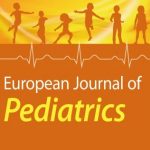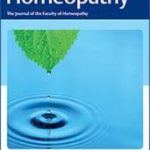Marcus Zulian Teixeira
Bronchodilators, fatal asthma, rebound effect and similitude
Homeopathy, 2007, 96 (2), 135-137

After the publication of my article ‘Evidence of the principle of similitude in modern fatal iatrogenic events’, new evidence was published which I brought to the attention of your readers through a Letter to the Editor. In a similar way to the non-steroidal anti-inflammatory drugs (NSAIDs), important new studies were recently published reinforcing the hypothesis that long-acting bronchodilators (β-agonists) may increase the risk for severe or fatal asthma exacerbations, as a consequence of the irreversible paradoxical bronchospasm (rebound effect of modern pharmacology or vital reaction of the homeopathic model).After numerous scientific protests, since GlaxoSmithKline presented the partial data of the ‘Salmeterol Multicenter Asthma Research Trial (SMART)’ at the Annual International Scientific Assembly of The American College of Chest Physicians in 2003, claiming that ‘the interim analysis was inconclusive’, the full results of the 26, 355 randomized subjects were published in 2006. Exploratory analyses of each outcome event within subpopulations were conducted, finding a significant increase in respiratory-related deaths (RR 2.16, 95% CI 1.06–4.41) and asthma-related deaths (RR 4.37, 95% CI 1.25–15.34), and in combined asthma-related deaths or life-threatening experiences (RR 1.71, 95% CI 1.01–2.89) in subjects receiving salmeterol vs placebo. African-American subpopulation was particularly affected (compared with Caucasian subjects): respiratory-related deaths or life-threatening experiences (RR 4.10, 95% CI 1.54–10.90) and combined asthma-related deaths or life-threatening experiences (RR 4.92, 95% CI 1.68–14.45) in subjects receiving salmeterol vs placebo.





